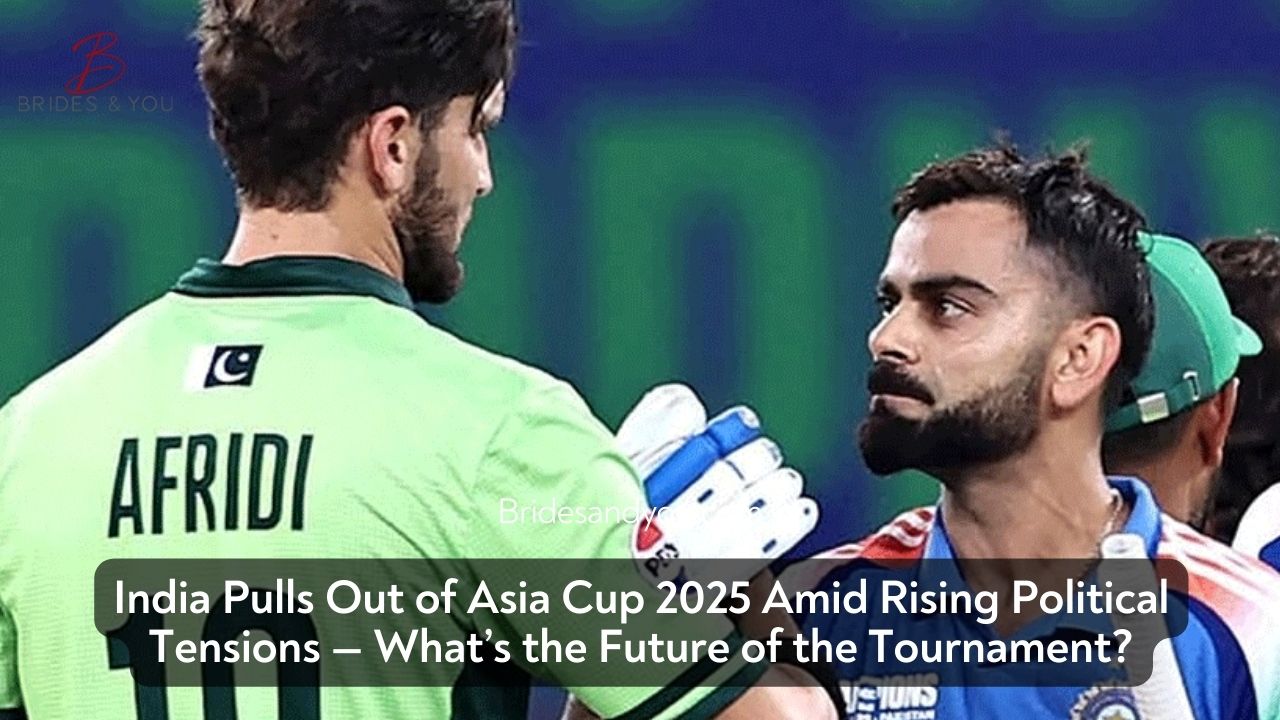Now Reading: India Boycotts Asia Cup 2025: Political Rift Overshadows Cricket
-
01
India Boycotts Asia Cup 2025: Political Rift Overshadows Cricket
India Boycotts Asia Cup 2025: Political Rift Overshadows Cricket

In a significant development that has rocked the cricketing world, India boycotts Asia Cup 2025, citing ongoing political tensions with Pakistan. This decision not only highlights the deepening rift between the two neighboring nations but also casts serious doubts on the Asia Cup’s relevance and commercial success without India’s participation. The tournament, which was slated to be hosted in India, now faces an uncertain future as geopolitical friction spills over into sports.
Why Did India Boycott the Asia Cup 2025?
The decision stems from India’s growing unease over Pakistan’s leadership in the Asian Cricket Council (ACC). With Pakistan’s Interior Minister Mohsin Naqvi also serving as ACC Chairman and head of the Pakistan Cricket Board (PCB), Indian officials reportedly found it inappropriate to participate under the leadership of a Pakistani minister amidst escalating border tensions.
A senior official from the Board of Control for Cricket in India (BCCI) confirmed the withdrawal:
“The Indian team can’t play in a tournament that is organised by the ACC whose chief is a Pakistani minister. That’s the sentiment of the nation.”
India has officially communicated its stance to the ACC, not only regarding the Asia Cup 2025 but also putting a hold on its participation in future ACC tournaments, including the Women’s Emerging Teams Asia Cup.
Political Tensions and Cricket: A Repeating Cycle
India and Pakistan’s political differences have often disrupted sporting events. Since 2012, bilateral cricket ties between the two nations have been suspended, and the teams have only met in multi-nation tournaments like the ICC World Cup and Asia Cup. Even in these events, tensions have simmered beneath the surface.
The Asia Cup 2023 was organized under a hybrid model, with matches hosted across Pakistan and Sri Lanka to accommodate India’s reluctance to tour Pakistan. India ended up winning that edition, defeating Sri Lanka in the final, while Pakistan failed to make it past the Super 4 stage.
Commercial Viability at Risk Without India-Pakistan Clash
The India-Pakistan rivalry is the biggest draw in Asian cricket. Their face-offs attract millions of viewers and drive massive sponsorship revenues. With India pulling out of the Asia Cup 2025, the tournament now risks losing its biggest financial magnet.
Broadcasters and sponsors often hinge their investments on the guaranteed engagement and viewership that comes with an India vs Pakistan showdown. Without it, both the tournament’s market value and fan engagement could plummet.
A Strategic Isolation of Pakistan?
Many observers view India’s move as a strategic effort to diplomatically isolate Pakistan within the cricketing world. With BCCI Secretary Jay Shah stepping down as ACC Chair to become the ICC Chairman, the reins passed on to Mohsin Naqvi, marking a dramatic shift in leadership dynamics.
India’s withdrawal sends a clear message: it will not engage in cricketing events led by Pakistani officials amid rising hostilities. The current political backdrop seems to have influenced this sporting decision significantly.
What’s Next for the Asia Cup and Asian Cricket?
The Asian Cricket Council now faces a major challenge. Without India, the Asia Cup 2025 lacks its star team, and several logistical, commercial, and diplomatic issues arise. It’s yet to be seen whether:
- A new host country will be chosen
- The ACC will adopt another hybrid model
- Other member nations will follow India’s lead
Cricket fans across the globe are left wondering: Can politics ever be separated from sport, especially in the subcontinent?










